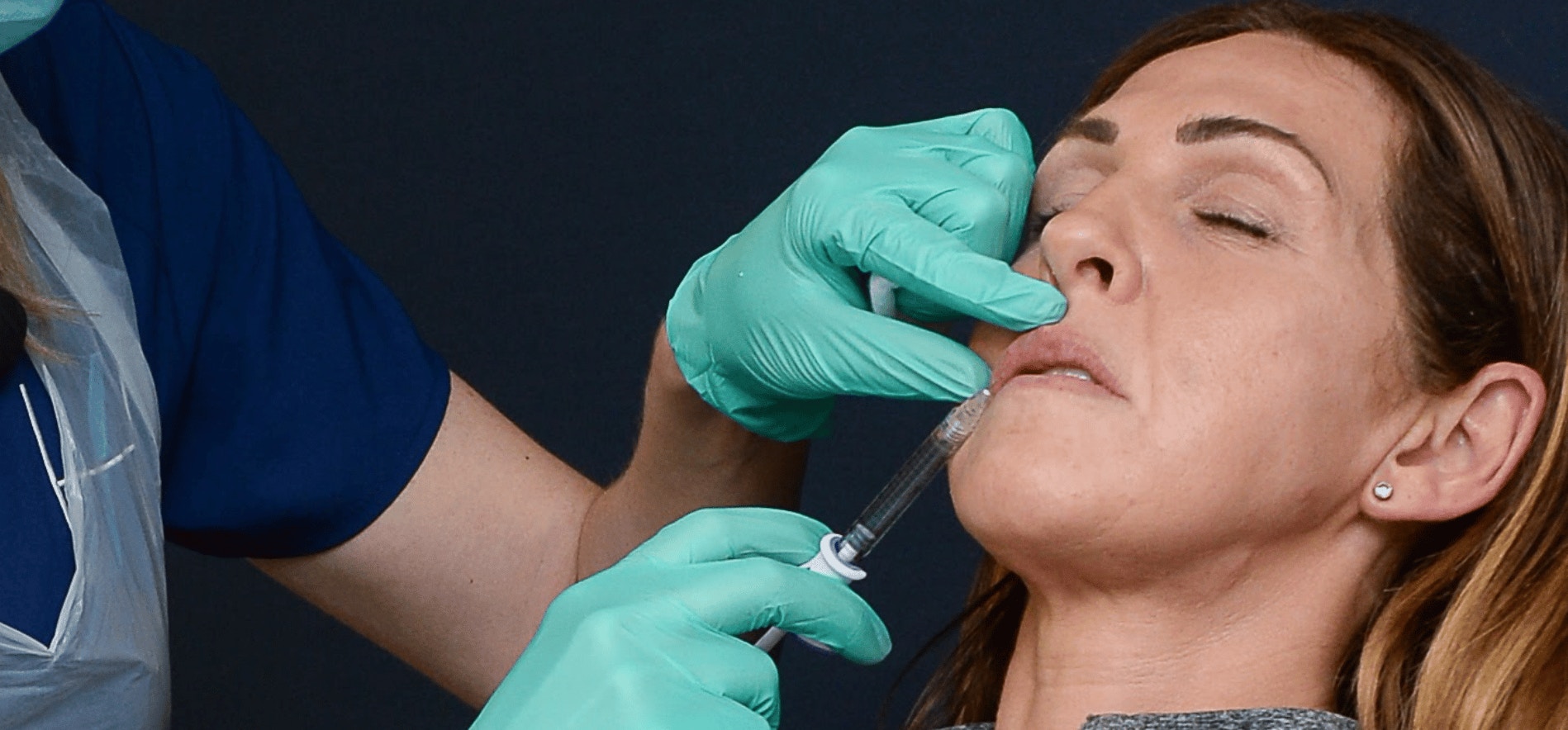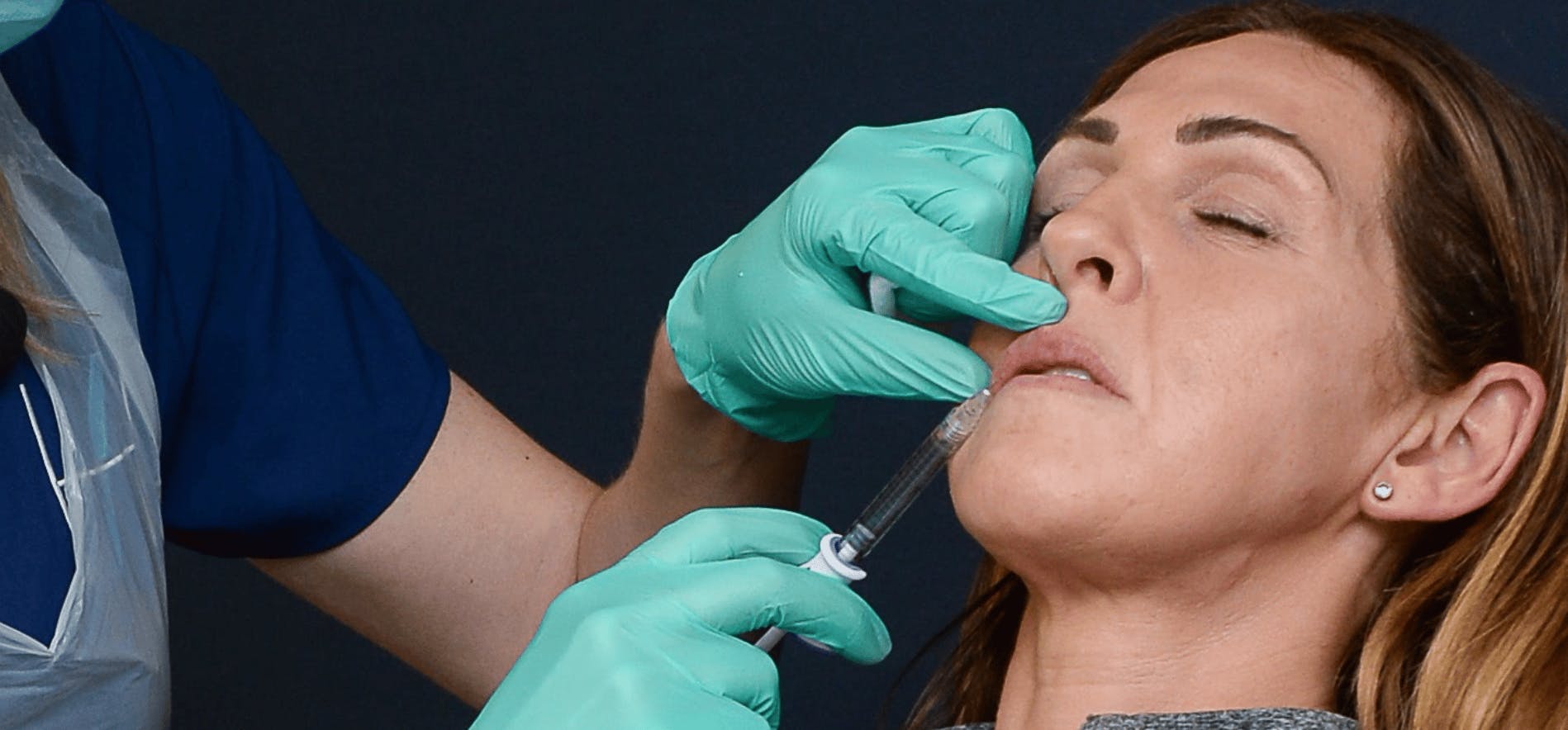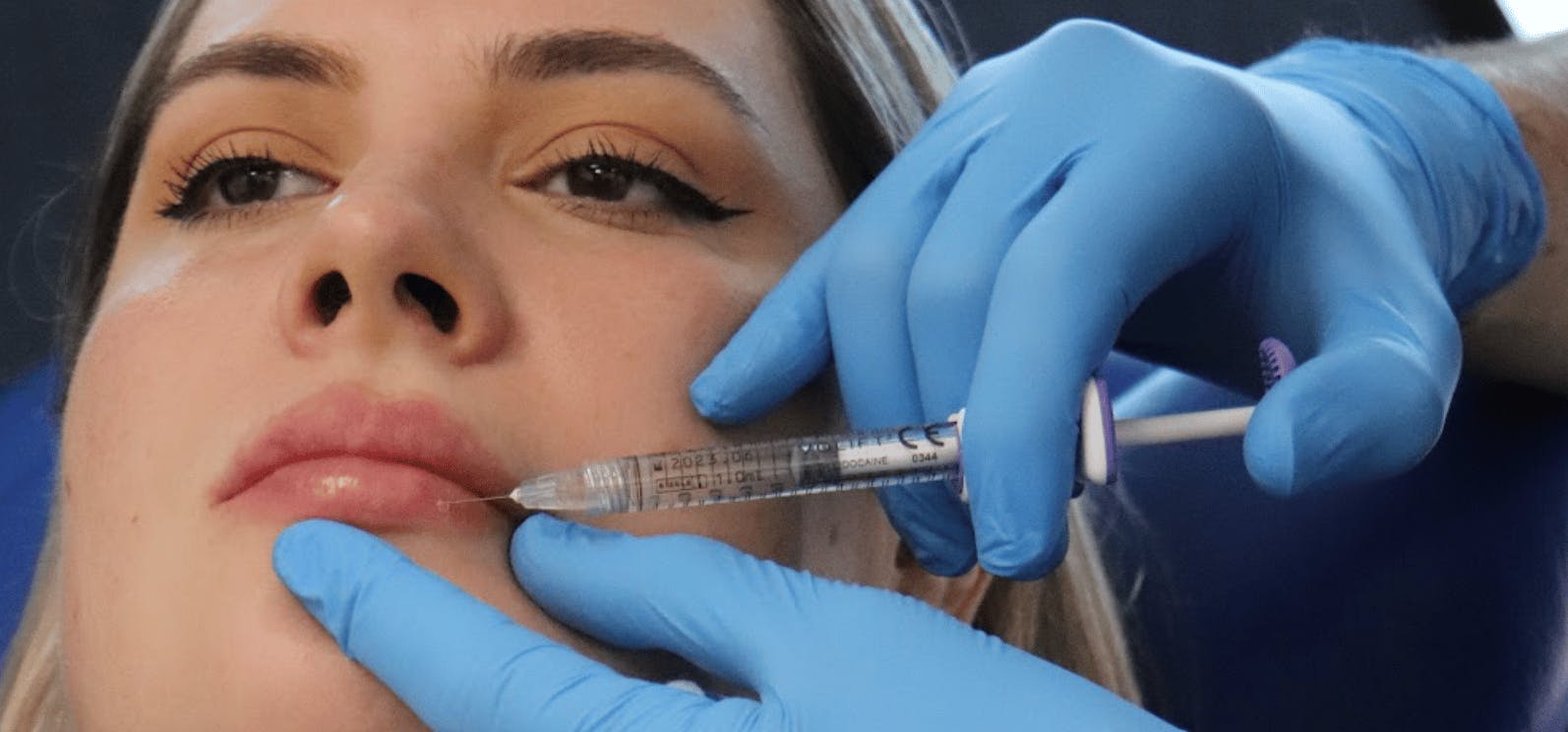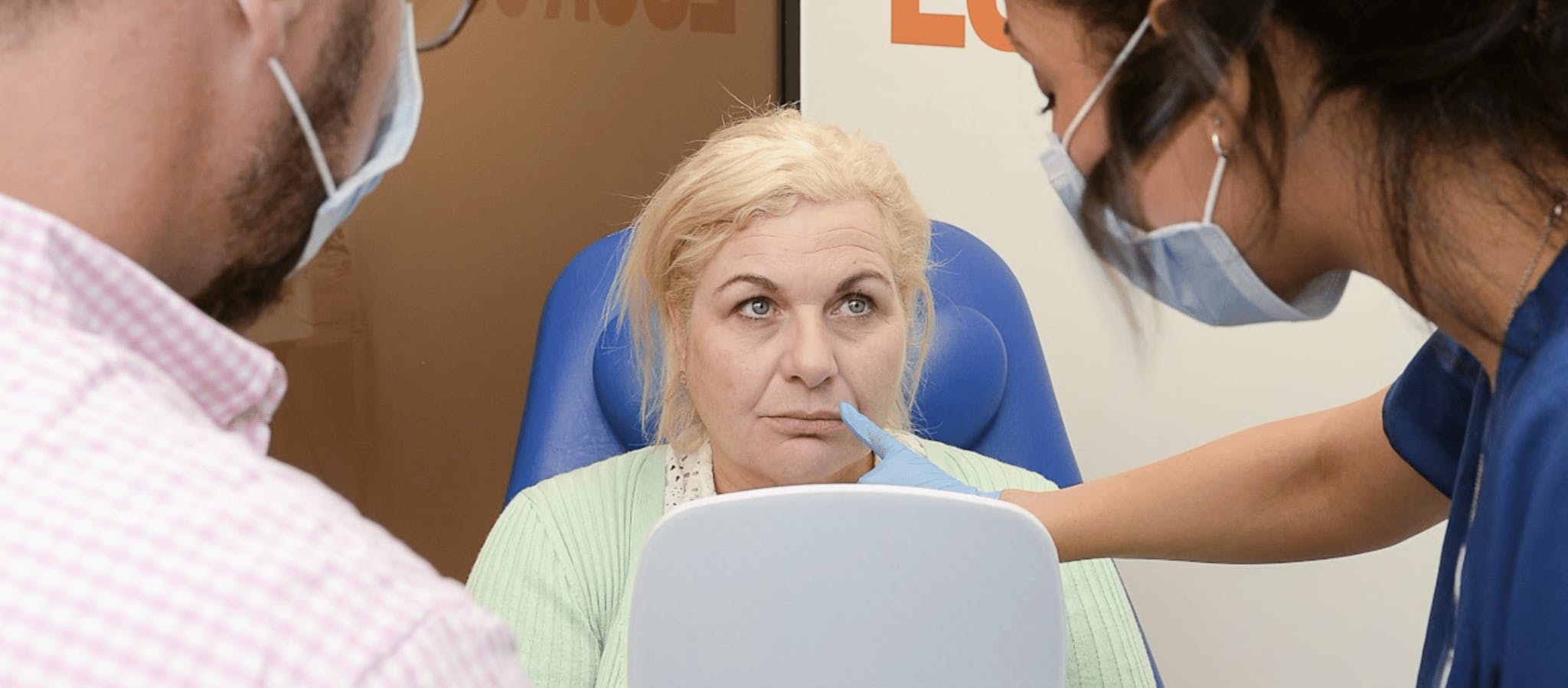Lip Filler Techniques for Mature Patients

Lip filler is one of the most popular injectable treatments but it’s also one of the most involved. There are a wealth of considerations that go into creating perfect, proportionate results, one of which is the age of your patient.
It’s worthwhile bearing in mind that, obviously, the whole face ages. Restoring foundational volume and skin quality in the pan facial context should be the primary focus. However, this depends on your patient’s goals.
In order to explore lip filler techniques for mature patients specifically, we interviewed Paula O’Sullivan. Paula is a cosmetic nurse injector, Level 7 graduate and clinical trainer.
To fully understand how to treat mature lip filler patients, she has also detailed the best lip filler techniques for youthful lips too. Read on for her insightful advice...

LIP FILLER TECHNIQUES FOR MATURE PATIENTS
“As we age, our vermillion border loses definition. The medial lip also loses volume, allowing the lip to shrink, roll under and lose shape. This results in a flattened cupid’s bow, minimal structure to the lip and the formation of perioral lines,” warns Paula.
“Due to the lack of lip structure and other surrounding tissue involvement, oral commissures are no longer supported, so a downturned smile will commonly present.”
“Treating ageing lips takes time, care and precision,” she advises. “Careful consideration of anatomical change, product choice and techniques is necessary to achieve a natural and age-appropriate look.”
Choose a soft filler product
“I would almost always choose a soft lip filler product for a more natural result in mature patients,” she says.
“Juvéderm Volbella is a great choice. This can be used to carefully restore the vermillion border, for which I would use a needle. The body of the lips can slowly be revolumised and hydrated with Volbella using a needle or cannula.”
“However, due to the thin nature of ageing lips, I would generally choose to use a cannula into the superficial layer (Layer 2),” she notes. “I would advise the patient that more than one treatment may be required to achieve the desired result.”
More mature patients often present with concerns about thin lips. Advice on how to treat patients with thin lips is discussed in detail in one of our previous articles.
As aesthetic medicine is such a new and rapidly evolving specialty, with ongoing research providing new insights regularly, you should strive to keep on top of this knowledge.
For the most up-to-date, evidence-based injection protocols and product recommendations, we recommend the GEM by Harley Academy app. This will provide you with the latest science on injection techniques, risks to manage and approach information, paired with HD treatment demonstration videos. The information provided in this Global Evidence Matrix is applicable no matter your product choice, so you can apply it to your filler brand of choice.

WHAT TO KNOW WHEN INJECTING MORE YOUTHFUL LIPS
“Typically, the more youthful filler patient requests a plumper lip or a natural enhancement of their original shape,” states Paula. “Again, product choice needs to be considered.”
“Although Volbella is a softer product, it can still plump lips that already benefit from their natural volume,” she advises. “For those patients requesting a more projected lip, then a product like Juvéderm Volift is an ideal option.”
“In most cases, the younger lip would still have an intact vermillion border, so I would avoid adding filler to this area, to minimise the risk of lip filler migration.”
“Depending on your level of expertise, a cannula or needle can be used. Administer the dermal filler in retrograde linear threads into the medial upper and lower lips. Be sure to use very small aliquots of filler,” she notes.
“Once you have built the volume up, I recommend a firm massage, to ensure there are no residual lumps and bumps.”

PAIN MANAGEMENT AND AFTERCARE FOR OLDER LIP FILLER PATIENTS
Anecdotal evidence and some research has shown that, the older we get, the more sensitive to pain we can become. We also know that more mature patients have an increased chance of bruising.
As such, there are certain steps you should take to minimise discomfort and prevent potential bruising.
Making lip filler more comfortable
There are a number of options for lip filler pain management, so select the best option based on your patient’s pain threshold and suitability.
In addition to using a topical anaesthetic, many filler products also contain lidocaine within the gel. This further adds to the patient’s comfort.
Injecting at a sedate pace, with minimal extrusion pressure, can also provide a more pleasant experience for your patients. Changing the needle as required, so it’s sharp is also a useful tip for minimising pain.
Minimising bruising from lip filler in older patients
Essentially these steps for preventing bruising from lip fillers should be the same regardless of your patient’s age.
When booking your patient’s appointment, make sure you advise them – ideally both verbally and in writing – of the normal pre-treatment advice. This includes not consuming alcohol before their appointment.
Also, even if your patient is in the upper age range, always pass on all aftercare advice. Do not, for example, assume that just because they are older that they do not partake in vigorous exercise.
When taking your patient’s medical history during their initial consultation, look out for any medications which may indicate a higher risk of bruising. If you see any red flags, prepare your patient appropriately and consider applying ice straight after as an added precaution.
LIP FILLER TRAINING COURSES
Expert lip filler training forms part of the majority of our injectables courses. These are all open to licensed doctors, dentists, nurses and midwives.
Lip filler injecting for beginners is covered in the following courses, where you will always have your own patient to treat – no sharing..!
Foundation Training in Medical Aesthetics
Medical aesthetics practitioners wanting a more in-depth education in injectables, including lip fillers, have the option of our industry-leading Level 7 Diploma in Cosmetic Injectables. This is a postgraduate qualification which is both Ofqual-regulated and JCCP approved.
It can be taken on its own or combined with our Cosmetic Dermatology Course.
Advanced aesthetics specialists looking to formalise their experience by obtaining a qualification in injectables should consider our Fast Track Level 7 Diploma. Unlike the rest of our pathways, this does not involve any hands-on injecting sessions.
Additionally, for practitioners wanting to brush up on their lip filler techniques, we offer a Perioral & Lip Filler Masterclass. This is a small group session that allows you to really delve into any issues you may be having, to learn new techniques or to simply build your confidence.
For more information, simply book a call with our Courses Advisors. They can provide you with personalised recommendations, answer your questions, and discuss aspects such as payment options too.
We hope you find this advice useful and, if you aren’t already, we hope to welcome you onboard to the #HarleyTrained family, soon!
All information correct at the time of publication
Download our full prospectus
Browse all our injectables, dermal fillers and cosmetic dermatology courses in one document
By submitting this form, you agree to receive marketing about our products, events, promotions and exclusive content. Consent is not a condition of purchase, and no purchase is necessary. Message frequency varies. View our Privacy Policy and Terms & Conditions
Attend our FREE open evening
If you're not sure which course is right for you, let us help
Join us online or in-person at our free open evening to learn more
Our Partners













STAY INFORMED
Sign up to receive industry news, careers advice, special offers and information on Harley Academy courses and services


